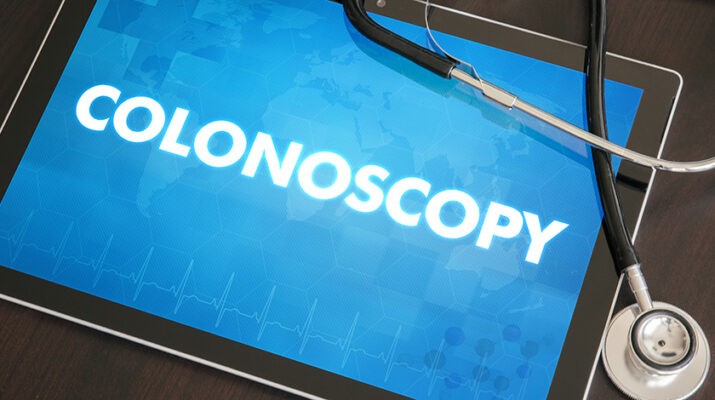By Daniel Meyer
Three people who I knew died last year from colon cancer. In one instance, it was less than three months between diagnosis and death for a man who was just 54 when he died. That type of heartache and shock is something I wouldn’t wish on my worst enemy.
The horrible and untimely deaths of those three individuals coupled with the urging of my own physician during a recent physical prompted me to make a commitment to secure an appointment with a gastroenterologist for my first-ever colonoscopy.
At 46 and with concerns about my family history of cancer, I recognized the importance of having the procedure done as one of the best preventive measures for my personal health.
Prepped and ready to go
I had heard from family members and friends terrible tales of doom-and-gloom surrounding “the prep.” The moaning and whining revolved around having to be on a clear liquid diet the day before the procedure, a process which includes the consumption of a stool softener cocktail that lacks anything in the form of taste.
That being said, I stuck to the game plan and only consumed water and green tea throughout the day before I began drinking the powdered laxative at the prescribed times until all 64 ounces were in my system.
I then sat back and waited… and waited… and waited.
It was one of the most mundane and mind-numbing evenings of my life, with hunger pains, downright boredom and frequent flatulence the only highlights after what would be my normal “dinner time” until I went to bed.
I then tossed and turned for quite some time, continuously wondering if I would set some sort of unofficial world record as the first person in modern history to win the battle against what I creatively labeled as my “pesky poop punch.” I even began to worry that maybe I wouldn’t be eligible for the procedure and my one-day fast and scheduled day off from work would all be in vain.
Nature called — with a vengeance
It was around 3:30 a.m. when nature called. To be quite honest, it wasn’t a call. It was instead an outright pillage-and-burn-invasion of my insides. All of my worries about frustration about a lack of “action” quickly flowed down the toilet thanks to my frequent trips to the bathroom. I felt a sense of relief and a bizarre level of achievement that the prep had worked through my system as planned and that my previous concerns about the magic not happening were nothing more than a distant memory.
For anyone who has yet to undergo a colonoscopy but plans to have the procedure scheduled sometime in the future, I offer some simple advice for “prep day” so that you are mentally prepared.
• Closely follow the doctor’s instructions
• Be prepared for some discomfort
• Use mind over matter to ignore any hunger pains
• Be patient, as good things come to those who wait
Show time
Once I was in the office of my gastroenterologist everything moved along without any real issues or concerns. I was given a gown, told to undress and make myself comfortable on a bed located in an area separated by curtains from other areas which also had beds occupied by other patients.
I was then wheeled into another room by a very nice woman who explained exactly what would take place over the next few hours. After further instruction and a brief conversation with my doctor, I was “given the gas” and began counting down from 100. And that was that.
Seriously. The next thing I remembered was looking around the room and wondering when my procedure would begin. I didn’t see anyone and was trying to focus and figure out exactly where my doctor and nurse were, at which point the nurse appeared, loudly chuckled and said “It’s all over. You did great. Congratulations!”
I was quite groggy, but had no pain and felt nothing else out of the ordinary. The nurse then told me to take my time and not get up until I felt ready to chat with the doctor, who eventually arrived to tell me that everything went well. He did remove one adenomatous polyp, which was biopsied and found not to be cancerous. He also recommended that I focus on a high fiber diet to avoid any potential problem in the future with diverticulosis, a condition where small pouches form in the wall of the colon.
He then thanked me for taking the time to get checked and learn that I had a happy and healthy colon.
Post procedure paperwork and final thoughts
About a week after my procedure I received documentation in the mail that the colonoscopy was a success. Included was the recommendation that I return for another colonoscopy in seven years. I later shared that information with my primary doctor, who promptly responded to my email correspondence by updating my personal information charts and thanking me for following through on her recommendation to have the procedure done.
I also did my own research the following day on the difference between hyperplastic polyps and adenomatous polyps and the benefits a high fiber diet has for anyone with diverticulosis.
While colonoscopies are certainly not something to plan a festive gathering around, the entire ordeal was pretty simple. The peace of mind I now have was well worth the trouble and minor inconveniences I experienced.
Note: The American Cancer Society recommends that men and women should be screened for colorectal cancer starting at age 50, with people who are defined by their medical expert as being “average risk” to start regular screening at age 45.

